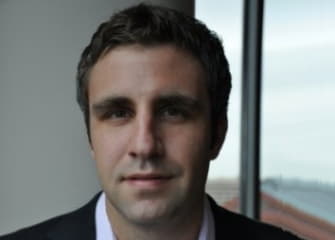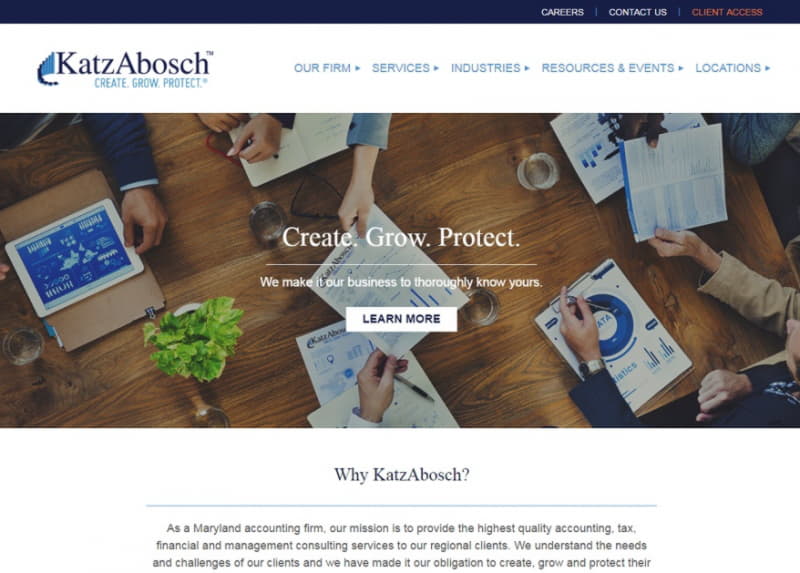
Guy Filippelli
Click here for Part II & Part III
Assessing the human side of enterprises to uncover insider risk
Guy Filippelli is the CEO of RedOwl Analytics, a insider risk management firm located in Baltimore, with offices in San Francisco, New York, and London. RedOwl differs from other security companies due to its emphasis on the human factor: human behaviors, attitudes, personas, and miscommunications that lead to breaches of sensitive data. The company’s platform combines industry-leading risk mitigation practices with regulatory surveillance and in-depth analytics to uncover patterns and stories about threats to the enterprise from within. Investors in RedOwl include Blackstone Group, Allegis Capital, Conversion Capital, Kevin Plank, TCP Venture Capital, and the Maryland Venture Fund.
EDWIN WARFIELD: How did you start RedOwl and what were you doing prior to founding the company?
GUY FILIPPELLI: Berico Technologies, my first company, was a tremendous foundation for me. My business partner there, Nick Hallam, continues to be my business partner. The experience that we had together of running a business, hiring people, firing people, learning about contracts and HR and all these things—and then just doing lots of different, unique technology projects for the government—was a great training ground.
But everything we built, we turned over to the client. That’s what a service company does. We bid on a project, we get the ability to hire seven engineers, we build something, we turn it over. And oh, by the way, everything we do, we do because the client asked us to do it. What if we had an idea of what we wanted to do, if we built it and then went out and sold it? To me, that’s the essence or the difference between a service platform and a product platform.
The second piece of it was the problem set. I like problems that are two to five years ahead of their time. For example, nobody in 2012 was really worried about the information security threats and the regulatory risk that their employees were exposing to the firm. People were worried about it, but it was certainly not a budget line item. If you talked to a chief information security officer and you said, “Tell me what software you’re buying,” They’d talk to you about all this network defense, and firewalls, and basically tools that were designed to track when outsiders were trying to hack inside the firm. This was mission of the chief information security officer, if there indeed even was one.
We made a very simple bet that these teams would need to start buying software to monitor the inside of the organization because, indeed, in an age where you could walk away with the entire IP of the firm on a thumb drive, or you could encrypt incredibly sensitive client data and upload to Dropbox—for a variety of reasons—this was going to become as risky, if not riskier, than the fear from the outside.
You go out to customers and say, “We’re thinking of building this—is this a good idea?” They say, “Great! It’s a great idea.” Then, you go out to the investors and say, “We’re thinking of doing this company,” and most of them, at the time, say, “It’s a bad idea,” because nobody is buying it right now. The key is to not trust the investors. I say that with a smile but that probably also means everybody’s not doing this. You have the seeds of an inflection point here. You have the seeds of an opportunity.
We put our heads together and we said, “What would it take to build this?” We were able to get some great early investors like Frank Bonsal and others here locally, and we were able to get a company off the ground and start a building technology.
The other piece is that, as a CEO of my last company, I did on a couple of occasions have to run some internal investigations where I had the possibility of some improper employee activity. That was an incredibly expensive process, where one brings in lawyers and investigators and suddenly you’re dealing with massive amounts of data that you own, that you’re sitting on. I thought, wow, if this is something we’re paying for and we don’t have control of our own information, this must be a nightmare for larger companies. That turned out to be the case.
With all this in mind there were lots of trends that pointed to the fact that more responsible, more effective monitoring of employee interaction with sensitive corporate data would be a very, very important theme for security—and in many cases compliance teams. That was the thesis that we formed the company under. We formed it and we started going.
Connect with Guy on LinkedIn
Sponsored by:
Founded in 1969, KatzAbosch is one of the largest CPA and business consulting services in the Mid-Atlantic region. Our mission is to provide the highest quality accounting, tax, financial and management consulting services to our clients. We understand the needs and challenges of our clients and we have made it our obligation to create, grow and protect asset value. The experts at KatzAbosch offer a full service solution while maintaining a tradition of ethics and incorporating the latest technology and unique business practices. Excellence in an industry often begins with how those closest to the company—its clients and employees—feel about it. For these individuals, KatzAbosch is a place where people and businesses excel and prosper. Our advisors can meet all of your service needs including; Audit & Accounting, Business Valuation & Litigation Support, Consulting, Estate Planning & Administration, Financial Institution Services, Forensic Accounting & Fraud Examinations, State and Local Tax (SALT), Taxes & Planning.


Edwin Warfield, CEO of citybizlist, conducts the CEO Interviews.
If you're interested in reaching CEOs, please contact edwin.warfield@citybuzz.co
Connect on LinkedIn

















